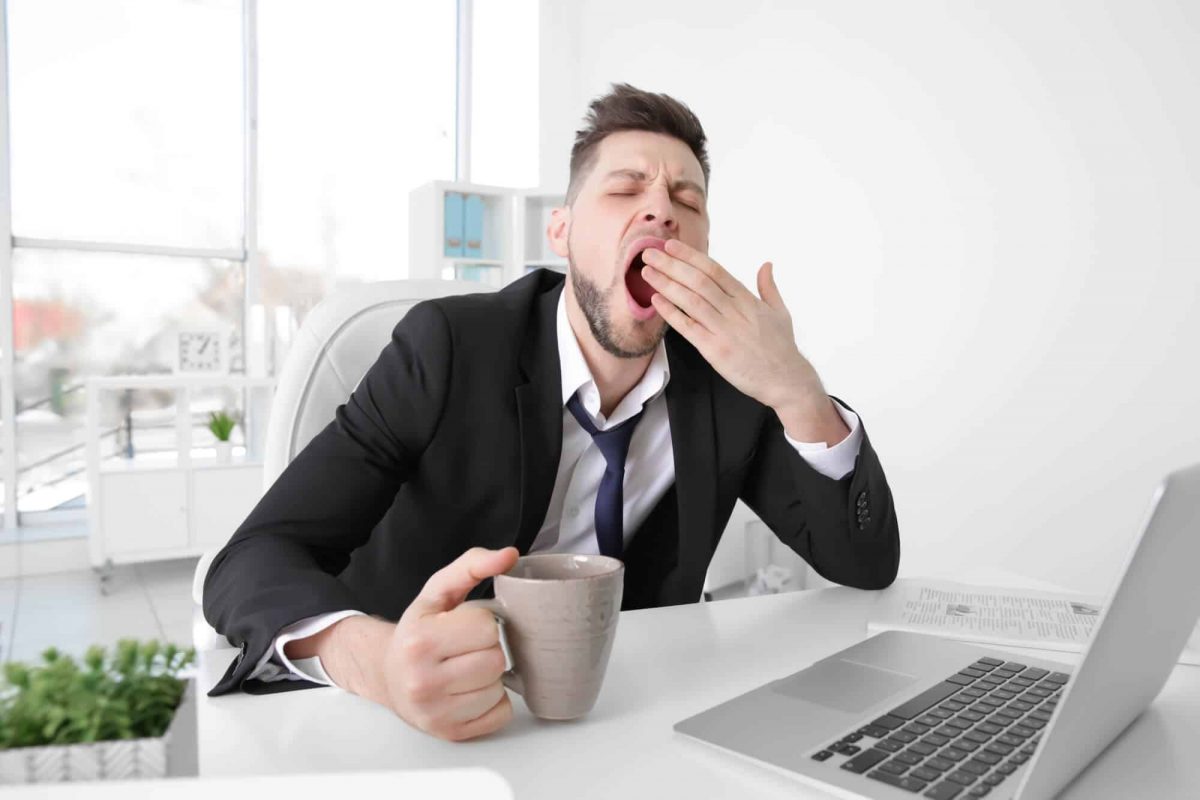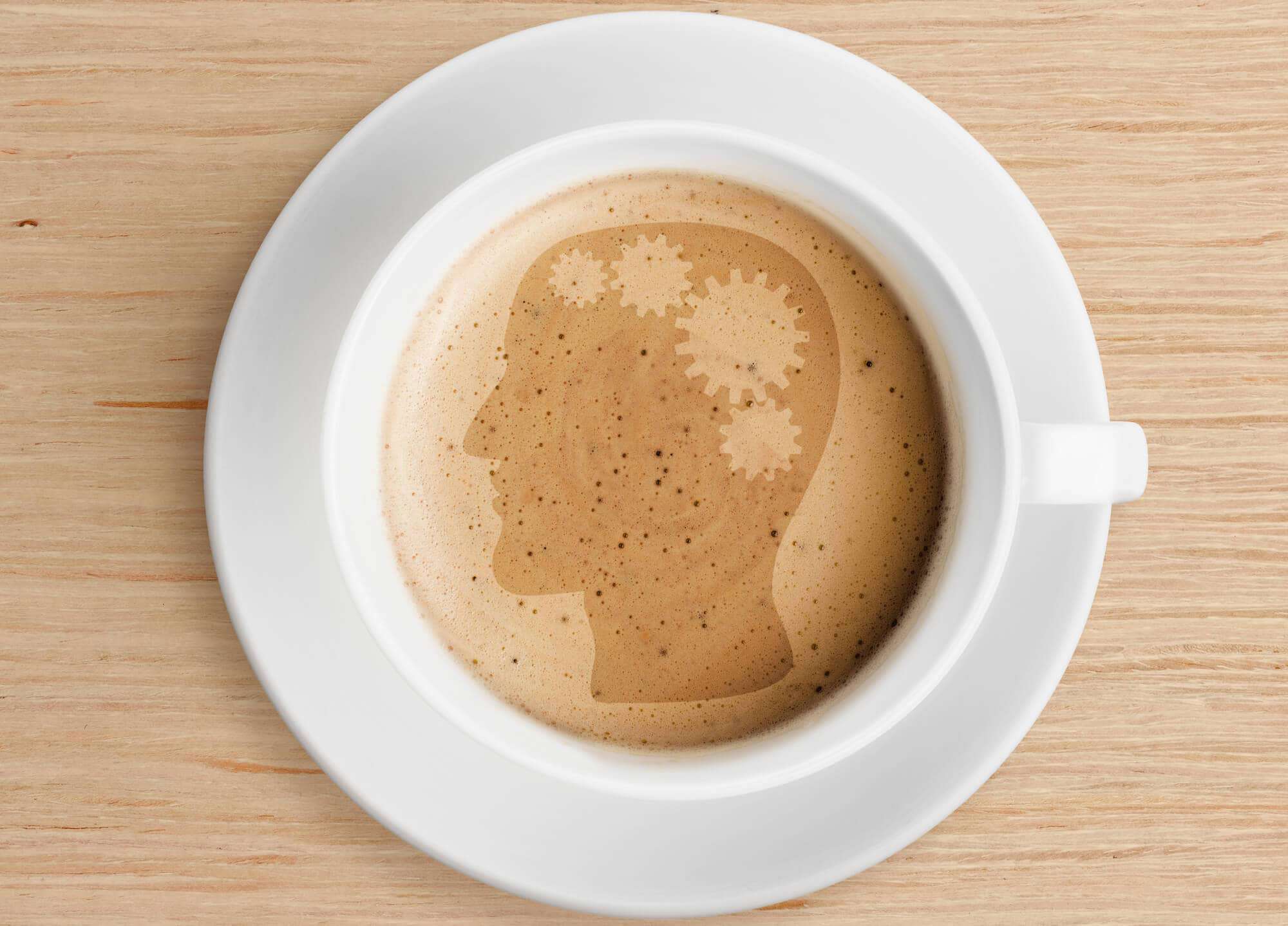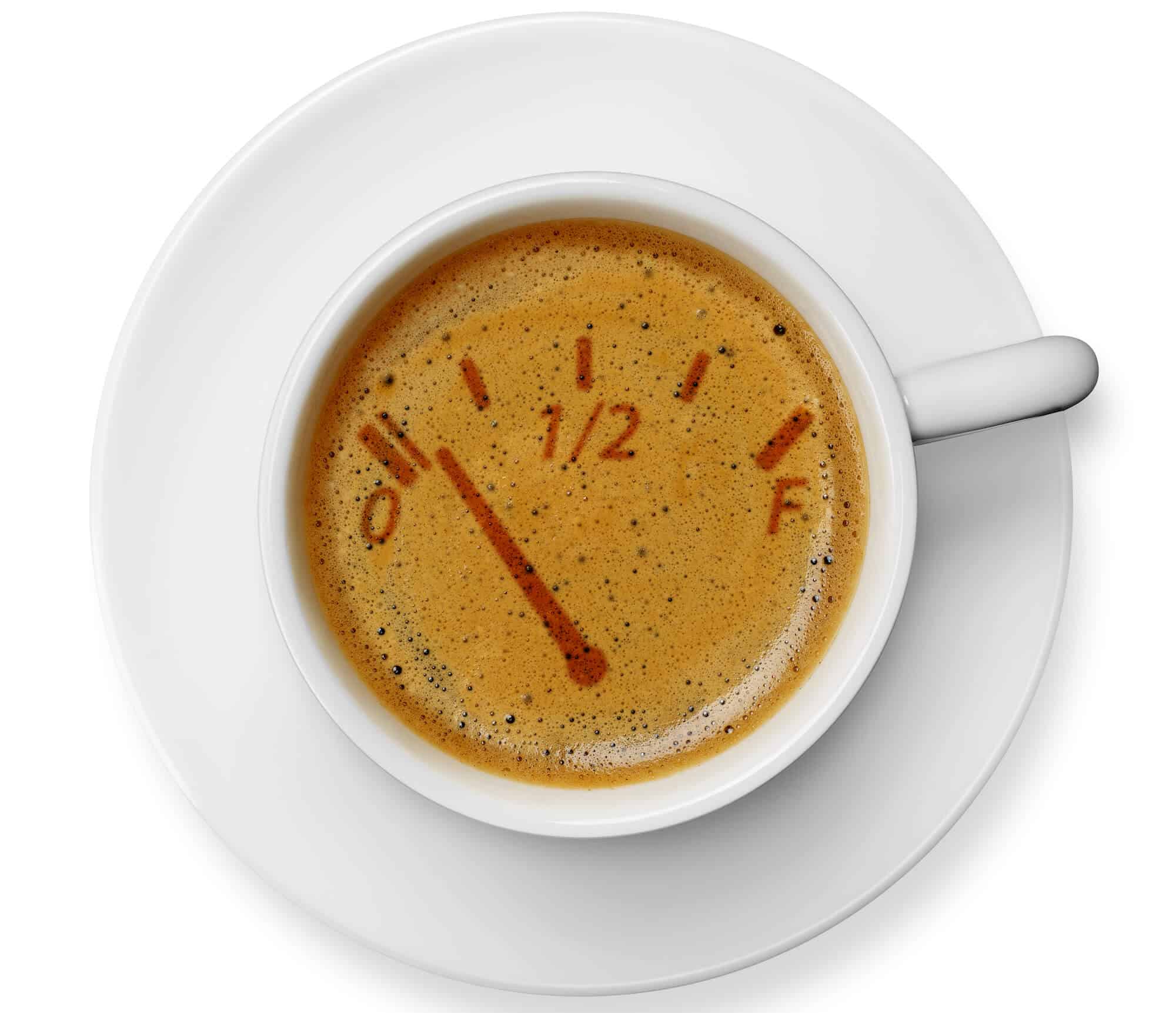Sleepy After Coffee – Why Does Caffeine Make Me Tired?

Do you find that you feel even more sleepy after drinking a caffeinated beverage? If that sounds like you, it’s entirely normal. The answer lies not with the caffeine not working but rather its effects on your body that make you feel tired after coffee. Let’s start with caffeine does.
How Does Caffeine Affects Your Body?
Caffeine targets several areas in your body including your brain, central nervous system (CNS), heart, and muscles. It stimulates the release of dopamine in your brain which is a chemical called a neurotransmitter that controls its pleasure center. That’s why drinking coffee feels good.
First, these neurotransmitters will cause your heart to beat faster and more forcefully, delivering more oxygen to your muscles. Your body normally releases these chemicals in fight-or-flight situations so that you can respond fast to threats, real or not.
Your metabolism will also increase because your muscles are going to need a ready source of fuel in order to react. With the added oxygen, your body can produce energy quickly and more efficiently using carbs and sugar as sources.
Your Brain on Caffeine
Second, It also interferes with a reaction that breaks down another chemical called messenger cyclic adenosine monophosphate (cAMP). That effect, in turn, causes a release of more chemicals called norepinephrine and epinephrine. That leads to multiple reactions in your body.
In addition to the previous reactions, caffeine affects most other parts of your brain. The overall effect is increased alertness, better thinking, and improved coordination. That’s one reason why athletes may use it as a stimulant for performance.
The rush of blood sugar or glucose will give your brain the added boost it needs. Despite its small size, your brain uses about 20 percent of your body’s glucose supplies. Now that it’s in high gear, your brain is going to demand more fuel.
Timing of Caffeine Effects
It doesn’t take long for caffeine to get to work because you’ll begin to feel its effects within 45 minutes. You’ll continue to feel the so-called caffeine high up to four hours after that first cup of coffee though it may last longer in pregnant women.
However, not everyone reacts to its effects as intensely or feels tired after drinking coffee. If you’re a regular coffee drinker, your body will develop some tolerance to its effects. Your central nervous system will likely still experience some stimulation from caffeine.
Not Everyone Reacts the Same
If you feel tired after a cup of coffee, you may be surprised to learn that some people don’t react in the same way. Individuals have different tolerances for caffeine which can affect their initial reaction and how they feel afterward. The effect on sleep also varies.
And other factors come into play too. Things such as how much water you’re drinking or when you last ate can also influence your reaction to caffeine after it’s worn off. The form of caffeine is something else to consider because of it may affect you similarly.
Coffee and tea are the obvious choices, but you’ll also find caffeine in soft drinks, energy boosters, and even in some painkillers like aspirin. The effects depend on the total amount in your body from all sources.
When the Caffeine Wears Off
It’s when the effects of this stimulant dissipate that you feel tired after coffee. It isn’t because caffeine is directly causing you to feel sleepy. You’re simply experiencing a return to status quo. Your heart rate will slow down, causing a drop in oxygen delivery to your muscles.
You may feel foggy without the extra rush of norepinephrine and epinephrine. And if your coffee was loaded with sugar, you may experience a sugar crash, especially if you are sensitive to low blood sugar which means you are hypoglycemic.
Hypoglycemia can cause irritability, hunger, and fatigue which can have you wondering can caffeine make you sleepy. That feeling may be more pronounced if caffeine has a diuretic effect on you. It stimulates urination in some people that can lead to dehydration over time.
Dehydration has similar symptoms as hypoglycemia including tiredness. So, when the coffee wears off, you’re experiencing less stimulation from the caffeine and the signs of these two reactions combined to make the effect more intense.
Feeling Hungry After Caffeine
Some people experience extreme hunger after drinking something caffeinated because their bodies have tapped their sources of readily available glucose. Remember, the brain and heart have increased their activity and have used more energy too.
That means there is less sugar in your blood. Breaking down stored energy takes time. In the meantime, you may feel a sudden and urgent pang of hunger as your body reacts to low fuel. And it certainly doesn’t help that hypoglycemia and dehydration cause similar effects.
All of these unpleasant feelings en masse create an impression that will stick with you. You may feel eager to find a cause to avoid a repeat performance. That sets up the perfect storm to make the correlation between tiredness and caffeine.
Why Does Coffee Make Me Tired? Caffeine and Sleepiness
It’s natural to assume that caffeine makes you feel sleepy. It’s what students of logic would call a post hoc ergo propter hoc fallacy. It translates from Latin as “after this therefore because of this.” The thinking pattern goes as follows.
You drink a couple of joe and feel sleepy after a few hours. The natural assumption is why does coffee make me feel tired? We jump to this conclusion because the two events happen closely with one directly after the other. You think, of course, it’s got to be the coffee.
Preventing the Afternoon Slump
You can prevent that caffeine crash by maintaining some level of caffeine in your body and avoiding the secondary causes of sleepiness. You can switch to a form that has less caffeine like tea in the afternoon, especially if the consumption affects your sleep at night.
Also, stay hydrated when drinking any caffeinated product. As a good rule of thumb, drink one glass of water for every cup of coffee. And you may want to consider using less sugar in your joe to prevent a sugar crash. That way, you can prevent sleepiness that may occur when afterward.
Is Coffee the Problem?
Caffeine is one of the most popular stimulants worldwide. Its effects are pronounced and quick since it’s so readily absorbed by your body. However, your body’s reactions to it are short lived. When it wears off, you’ll likely feel a drop in energy which can make your sleepy.
It’s not the caffeine, but its absence that makes you tired. And if you throw low blood sugar and dehydration into the mix, you have the recipe for a sleepy afternoon. Fortunately, there are ways to prevent it and keep you productive all day long.

